SOCIAL STUDIES; LEARNING THE IJAW CULTURE.
Greetings my respected friends in this incredible community. I hope we are doing wonderfully well.
Today, I want to share with you all the culture of my Ethnic group. Am keeping my fingers crossed that you will like it.
Culture is a body of factors such as beliefs, social standards and ethnic background shared amongst people of a certain region. Culture comprises values, norms, intolerance, social influence and human activities. Values and beliefs hold great significance. Norms set an objective of what is socially adequate.
Culture is the mixture of spiritual and emotional characteristics of a specific set of people. It defines the identity of a distinct group of people. Culture comprises food, dressing, arts, literature, language, etc. Furthermore, it consists of traditions and beliefs that are followed and carried out by people from historical times. Honourably, this is something that people follow as a community and society.
| THE IJAW CULTURE |
|---|
The Ijaw ethnic group is the largest minority group in Nigeria who are predominantly fishermen and they speak Ijaw as their main language. They are located on the south-eastern coast of the country and some parts of the south-west coast, including the Bayelsa, Delta, Rivers, Ondo and Lagos States.
For this post, I will be writing about the culture of the Ijaw people in Bayelsa state of which I am one myself.
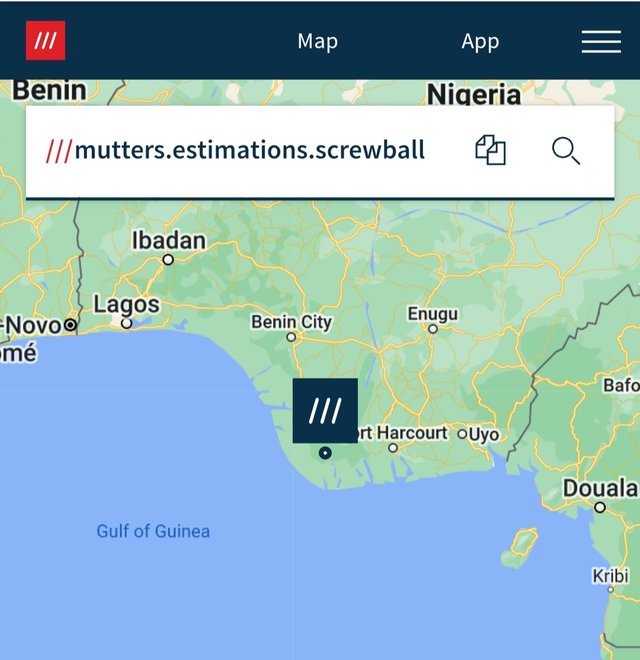
What3Words Location
| DRESSING |
|---|
Ijaw use cloth (wrapper) as their traditional attire. The Ijaws wear an Abada, made from George cloth, dressed in a trouser and a shirt with a cloth on top and a hat. The Ijaw men have their shirts in three major styles, the Etibo, Owoko and Jumper.
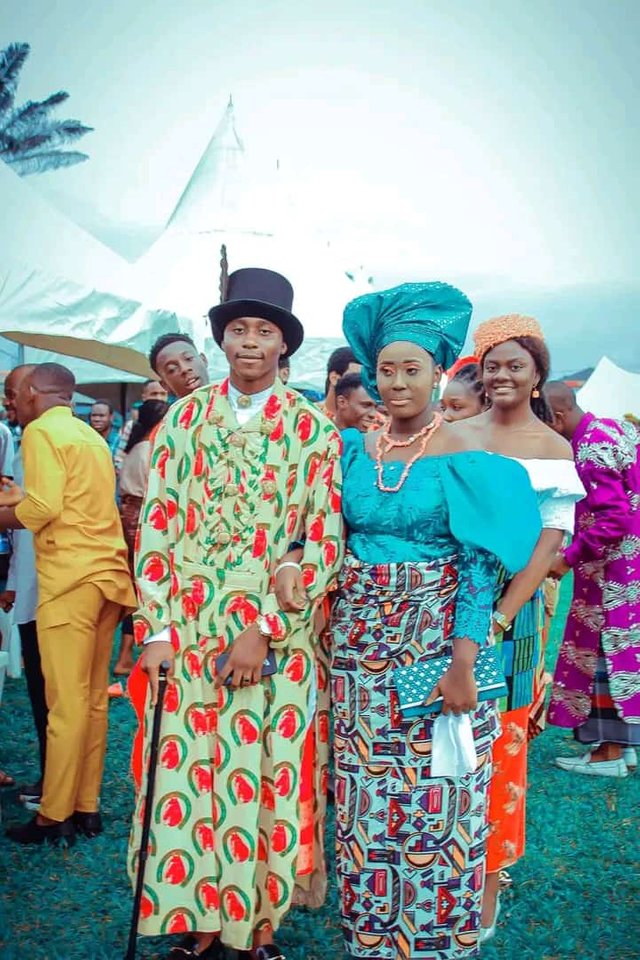 Location Location | 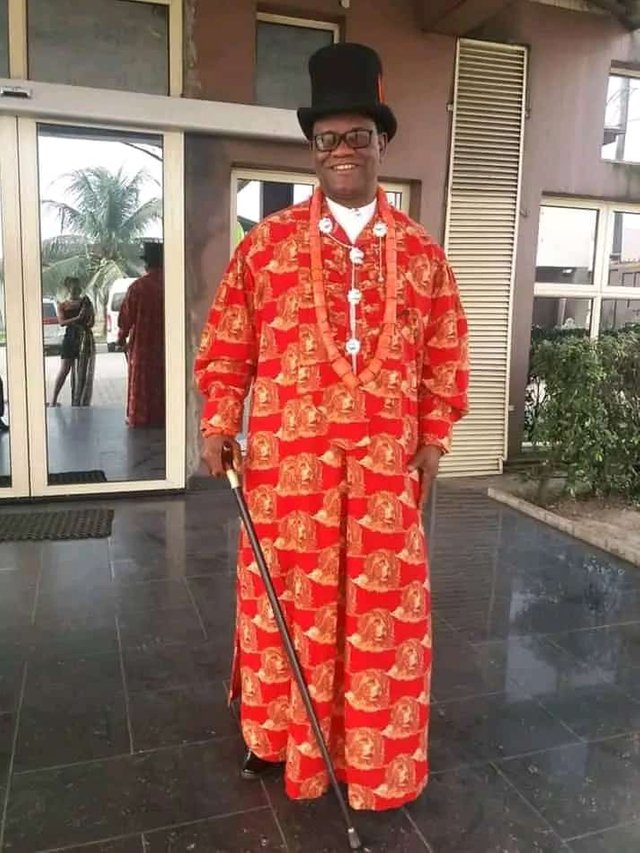 Location Location |
|---|
The Ijaw woman wears a blouse with two wrappers on her waist and headgear. The respondents indicate that the significance of their dress culture is to showcase their wealth, and social status and enhance their beauty. Considerably, belief and education have introduced different modes of dressing among the Ijaw people, showcasing the flexibility in culture. Nonetheless, the monarchs and chiefs are relatively bound by tradition and heritage of culture to always conform to the status quo in their respective societies.
| FOOD |
|---|
The Ijaw people are predominantly farmers, producing foodstuffs which are used to prepare a variety of dishes for their people such as the Onunu or mbedakaagun (fufu), which is usually eaten with a variety of soups from palm nut soup (Banga soup), Iginafluo (the light soup or pepper soup), through Apapa fluo (groundnut
soup) Okra soup, Green leaves (vegetable) soup. Other staple foods is the Kekefie (plantain porridge). These varieties of food provide the requisite protein, carbohydrates and vitamins to
promote the health of the people.
| MUSIC AND DANCE |
|---|
Music and dance are activities that characterize an African musical expression, and they play important roles in the lives of the people. The
Ijaws have music and dance as an integral part of their lives, which the people use to express themselves on joyous as well as sorrowful occasions
such as naming ceremonies, marriage ceremonies, festivals, puberty rites, wars, and religious worship and funerals among others.
The people use their music and dance to encourage and establish unity among themselves as well as with the spiritual world. With the relative dance step called Owigiri which involves the whining of waist in rythym with the legs.
| GREETINGS |
|---|
Greetings are important among all cultures and the Ijaws are not left out. The various forms of greetings among these people illustrate their respect for one another and most especially the elderly as well as people of elevated status. The Ijaw people greet "Noa" and "Dou" at every time of the day. This form of greeting is again used for saying welcome, thank you or well done. Whereas some say "Seiridou" for Good morning. Relatively, young people kneel to greet elders saying “Koide” or “Okoido” meaning “I am on my knees" in respect for elders.
| FESTIVALS |
|---|
The Ijaws celebrate quite a lot of festivals as part of their rich culture to remember their ancestors and sacrifice to them. The celebrations are largely characterized by drumming, singing and dancing.
The three major festivals celebrated by the Ijaws are the Segbein, New Yam Festival and Amapumo. With their habitat and towns being very close to the water, they experience yearly floods between August and November. when the flood dried up at the end of November or early December, then the Segbein festival is celebrated. This is because as the water dries up, there is a lot of fish caught up in the mud, which the people go after.
Both men and women are involved in this exercise. After bringing home the harvest of the seafood, they compete in a boat regatta, popularly known as "Omoigu Aru" which is a boat racing exercise. The chiefs, elders and other members of the community, and visitors gather at the riverbank to watch the display.
In the evening, the traditional priest offers gifts and performs libation to the forefathers, expressing their appreciation for the harvest. The people give parts of their harvest to the traditional priest, compound heads and the chief of the town. This attitude of sharing symbolises their great sense of caring and belongingness.
The "Amapumo" (sweeping away), is a town cleansing festival, that takes place also at the end of a flood. At the dawn of the day ordained for Amapumo, the traditional priest, chiefs and some members of the community dressed in rags with their faces darkened with kitchen soot and branches of oil palm leaves in their mouths while they
sweep every compound, footpath and some parts of the whole community. This is done as a symbol of “sweeping away” diseases, scarcity, condemnations, barrenness, starvation and death. The ritual is crowned at the river bank when they wash their bodies as an indication of washing away their problems, after which they dine and make merry.

| PHOTOS DETAILS | |
|---|---|
| Photographer | @Sahmie |
| Camera Device | Redmi note 11 |
| Camera | Rear |
| Pixels | 50MP |
| Otherwise | Edited using Lightroom |
| Category | culture, Lifestyle, Nature |
| Location | Yenagoa, Bayelsa. Nigeria 🇳🇬 |

NOTE: Always have a smile on your face, as you are never fully dressed without one.

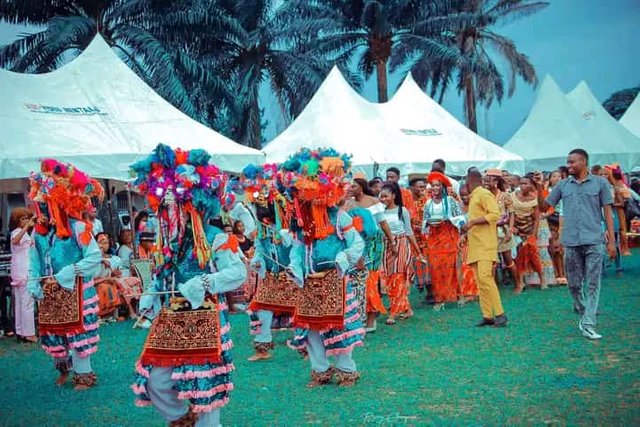
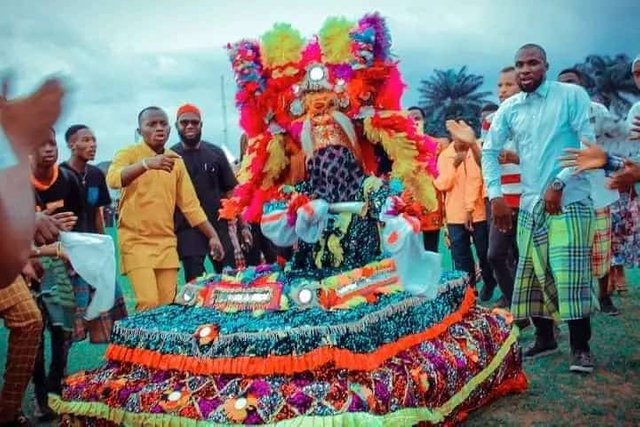
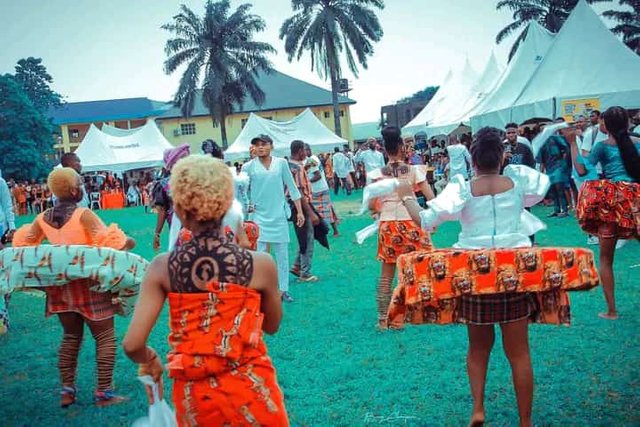
Thank you so much for the lecture..I didn't know ijaw people are fishermen.
One thing I love so much about them is their dressing and culture
Ah! The Ijaws are mainly known to be fisherman as they are surrounded by water everywhere.. Its civilisation that has brought about white collar jobs. But they still do fishing as hobby. For those in the villages still carry on this practice
Wow that really amazing to note..
I guess one day I would visit because I would love to taste fresh fish especially cat fish
You are over welcomed.. I will be waiting among the welcoming entourage.. Lol 😆
Hi dear, you have written wonderfully about the Ijaw culture, thanks for tye levtures on this particular culture and i wish you the very best.
It is my pleasure that you enjoyed it. And am very thankful of the encouraging comments.
I have heard so much about ijaw people and culture from a friend that we served together. Indeed there are good in traditional dance.
Thank you. I see you've heard of the Ijaw people. Its nice to know that we know other things too other than dancing.
Congratulations, your post has been supported by @steem4nigeria. This is the official community account of Nigerians on Steemit. You can reach us here on our community account.
Discord Facebook Twitter
Thank you.